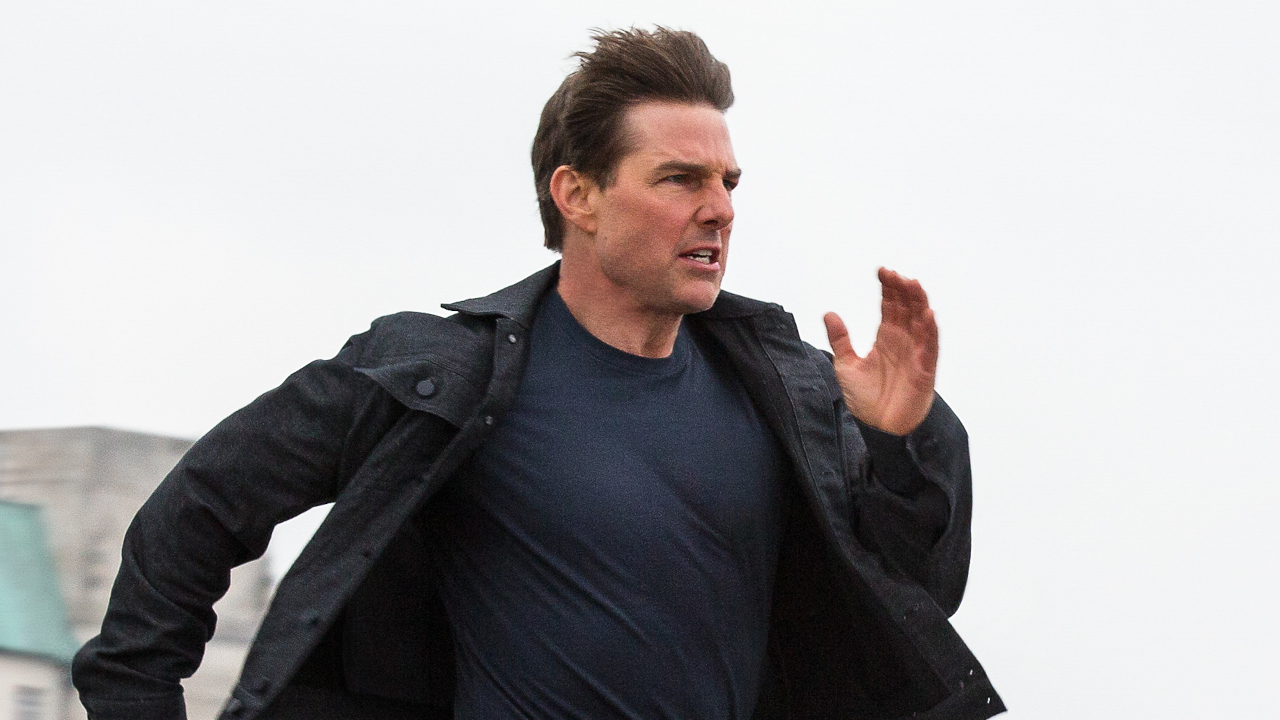Director Christopher Landon has made a name for himself in the last few years with genre-bending takes on the classic slasher story – specifically the time looping antics of the fantastic Happy Death Day films and body swapping fun in Freaky – but his latest, Drop, is a different kind of cinematic exercise. Foregoing the whole “mashing” angle, 2025 feature could be featured in the dictionary next to “high concept thriller.”

Release Date: April 11, 2025
Directed By: Christopher Landon
Written By: Jillian Jacobs & Christopher Roach
Starring: Meghann Fahy, Brandon Sklenar, Violett Beane, Reed Diamond, Jacob Robinson, and Jeffery Self
Rating: PG-13 for strong violent content, suicide, some strong language and sexual references
Runtime: 100 minutes
It’s not particularly complex or in any way post-modern, but it’s not equipped or expected to be. What it lacks in any standout angle is made up for in its promises as a slick, Hitchcockian thriller, and it’s within that box that it’s ultimately successful. It sets its stakes, establishes likable characters, and it builds well, culminating in an engaging and entertaining 100 minutes.
Meghann Fahy stars as Violet – a widowed survivor of domestic abuse who, after years of solitude, decides to be bold and leave her bubble of single motherhood for a night to go on a date. She meets Henry (Brandon Sklenar), a photographer with whom she’s been messaging for months, at a restaurant overlooking the city of Chicago, and things start out awkward due to Violet’s faded dating skills… but then quickly get far worse.
The protagonist starts getting mysterious AirDrop messages on her phone with playful but urgent memes, and while she ignores them at first, she recognizes that she isn’t being simply pranked when she is told to check her home’s security cameras: there is a masked man in the house with her son (Jacob Robinson) and her sister Jen (Violett Beane), who is babysitting. She is told that the only way to save the lives of her family is to follow explicit instruction, eventually discovering that the end goal of the demands is the murder of her date.
Drop has a clever mystery that never gets too big as to disappoint.
Drop isn’t the most advanced mystery that audiences will see on the big screen this year, as I would bet that somewhere in between 33-40 percent of people will be able to suss out the big secret before the movie is ready to reveal that information, but the story successfully circumvents that issue with a narrative that moves smoothly and logically; there are certain cinematic tells that I won’t identify in this venue, but they don’t undermine Violet’s actions.
The script by Jillian Jacobs and Christopher Roach is smart in its deployment of exposition and road blocks that inform the mystery and present interesting conflicts for the protagonist to work around (and I’ll note that it doesn’t cheat by giving the villain eyes and ears everywhere via some kind of super hacker either). Violet acts intelligently under duress, devises realistic and smart methods to try and get help, and works surreptitiously to suss out who within 50 feet is sending the drops– and it’s effectively disheartening when things don’t work out as hoped.
All of the weird behavior does outwardly make Violet a pretty terrible first date, as it is demanded that Henry not be aware of what she is doing, but even that ends up being well-addressed.
Meghann Fahy is truly the lynchpin of Drop.
It’s a film where it is vital that the audience fully connect with the protagonist, and that’s well done both through the character’s emotional backstory and thanks to a wonderful turn by Meghann Fahy. It’s a role that requires an equal balance of fear and fortitude, and the White Lotus star proves perfectly up for the task. The actress presents a terrific nervous energy from the jump, as she worries about leaving her young son at home for the first time, and that demonstrated love ends up feeding into the stakes as you question just what she will be willing to do to protect him. Fahy also projects a resilience that comes from the character’s history with an abusive partner and a fierce desire to never be controlled like that again.
Henry is the less demanding role, but Brandon Sklenar pumps the character with an ideal nice guy energy that proves vital for the story. Not dissimilar to a movie keeping a family bolting from a clearly haunted house, the potential design flaw in Drop is Henry not just throwing his hands up and telling Violet that her suspect behavior is freaking him out – but Sklenar has a gentle charm that makes his staying at the table realistic and a natural result of Henry’s personality.
In discussion of the cast, one actor who deserves a special shout-out is Jeffery Self. Playing an overly enthusiastic waiter who is thrilled to be serving a couple on their first date during his first shift at the restaurant, Self shoulders the weight of being the movie’s principal comedic relief, and emerges as a scene-stealer with a great “that guy” energy and a fun mirror for the audience as an outside party observing Violet and Henry.
For being set in a limited space, Drop delivers splashes of thrilling style.
Without time loops or body swaps this time around, the big creative challenge for Christopher Landon with Drop is its contained focus and simple setting, but he uses it well and gives the movie aesthetic character. Cinematography presents a smart geographical awareness of the limited space that has hero and villain confined together, the director keeping the camera moving, and tight angles are used to deliver feelings of tension, paranoia and claustrophobia (Fahy’s turn regularly providing the other half of the equation). The inelegance of sinister text on screen is never totally surmounted, but it’s paved over with the star’s performance.
Overall, it’s not a movie to obsess over and infinitely rewatch (too much thinking will lead you to recognize that AirDrop is more effective for creating a snappy title for the feature than as a plot device), but it’s a film made for Friday night fun at the movie theater. It doesn’t bit off more than it can chew and satisfies as a result – though while also never exactly making you feel full.

Eric Eisenberg is the Assistant Managing Editor at CinemaBlend. After graduating Boston University and earning a bachelor’s degree in journalism, he took a part-time job as a staff writer for CinemaBlend, and after six months was offered the opportunity to move to Los Angeles and take on a newly created West Coast Editor position. Over a decade later, he's continuing to advance his interests and expertise. In addition to conducting filmmaker interviews and contributing to the news and feature content of the site, Eric also oversees the Movie Reviews section, writes the the weekend box office report (published Sundays), and is the site's resident Stephen King expert. He has two King-related columns.
You must confirm your public display name before commenting
Please logout and then login again, you will then be prompted to enter your display name.











